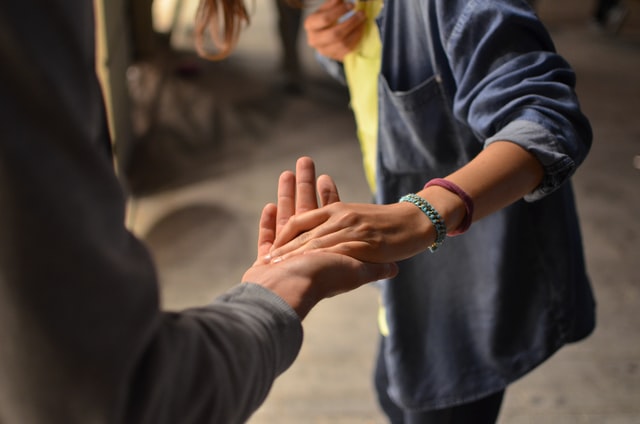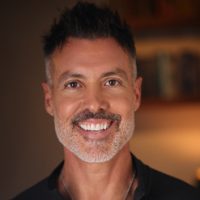Check out Elephant’s Continually-updating Coronavirus Diary. ~ Waylon
I spend many sleepless moments these days, thinking about how LGBTQ youth are being supported, and how youth, in general, are being impacted during this time of quarantine.
For the past six years, I’ve taught socio-emotional learning throughout Los Angeles County.
Last week while attending a virtual training for mandated reporters, or persons legally required to report child abuse, I was startled to learn that emotional abuse, neglect, and physical abuse increase with job loss and isolation—both of which we are collectively experiencing right now.
Something else we are collectively experiencing during this time of quarantine and COVID-19 is trauma.
When we think of trauma, most of us think of rape, murder, death, a catastrophic event, or a natural disaster. And while these are unequivocally traumas, trauma is also experienced as daily micro-aggressions, such as neglect and social rejection.
The way trauma works is that the current trauma often compounds past trauma.
In a 2019 article called, “Rejection Kills“, author Elitsa Dermendzhiyska references a 2003 landmark experiment by psychologist Naomi Eisenberg. The experiment helped researchers conclude social rejection is as traumatic to the body as physical harm.
While getting her doctoral degree at the University of California, Los Angeles (UCLA), Eisenberg was curious about popular expressions such as, “My heart was broken,” or “He hurt my feelings.”
She noticed how even though they’re used to describe rejection, they also imply physical pain. She organized an experiment that researchers replicate even today to demonstrate the harmful effects of social rejection.
According to Eisenberger, when it comes to feeling rejected, she says, “The significance of social pain goes back to evolution. Throughout history, we depended on other people for survival: they nurtured us, helped to gather food, and provide protection against predators and enemy tribes. Social relationships literally kept us alive.”
When LGBTQ youth are rejected by families, caregivers, or communities, and when they don’t feel safe at home, there isn’t just emotional or physical pain, there are neurological effects as well.
Regarding rejection, the article further says, “The harm goes beyond emotions. A growing number of researchers now recognize that threats to our social identity, such as being negatively evaluated by others, can tamper with crucial neurobiological systems.”
All young people face challenges growing up. My niece just turned 13 and is beginning to have arguments with her friends. She’s at the age when young people begin to compare themselves to one another and form cliques.
Now, add the possibility that a young person faces possible rejection from family members because of their gender identity or sexual orientation. It’s no wonder some LGBTQ youth take refuge inside the closet.
But the closet is also a hotbed for shame.
Any child who knows the closet has known fragmentation and shame—and shame itself is trauma.
Dermendzhiyska also says in her article that rejection doesn’t have to come from family, or even people we know, to do us harm. It also doesn’t have to be fully obvious.
“In insidious forms, it lurks woven into the very fabric of society. The rejection might be implicit but, if anything, that makes it even more pernicious because it goes unquestioned: we often accept social inequality the way we inhale polluted air, or we justify it as a matter of merit.” ~ Elitsa Dermendzhiyska.
I’ll never forget when I was in junior high and still in the closet, I got into a fight with my best friend on our way to school.
Because of our argument, he walked ahead of me to school by himself. When I eventually arrived, no one spoke to me. It was like he had made an announcement to the entire school. I found out later that he had started a rumor that I was gay and had tried to hit on him.
For a solid week, I came home and sat in my room waiting for my friends to call. They never did, and I eventually transferred schools because the shame from being rejected was beginning to affect my grades.
Rejection from our circle, especially for a young person still trying to figure out their place in the world, is traumatic and it affects the neural pathways of our brains the same as pain.
With an increased awareness of the trauma associated with LGBTQ rejection, we can strengthen our willingness to affirm, acknowledge, and include LGBTQ youth in conversations at home and inside classrooms.
Our impact on young people can be quite different from our intent. Whether or not we have an LGBTQ child, the conversations we don’t have about the communities we don’t identify with can unintentionally be rejecting.
The darkest parts of ourselves sometimes emerge during times of crisis. It’s also during the most difficult times in our lives that the innate goodness of our humanity can shine its brightest.
While my human self grieves for the collective trauma many young people are experiencing right now, including LGBTQ and other marginalized youth, my spiritual self keeps reminding me:
In time and space, as it exists, we can’t truly know what anything is for. Honoring grief is important, and so is knowing that the highest good is always unfolding.
I firmly believe there is a deeper meaning to every circumstance and a spiritual solution to every challenge. Now, more than ever, I have been leaning into my faith and spirituality to keep me grounded, sane, and hopeful.
I also believe there is a reason I’m here on the planet during this time, just as there is a reason you’re here as well. Each of us, on a soul-level, chose this particular time to be born. There are no coincidences and the fact that we’re here means we have something to contribute.
Although it can seem overwhelming and I’ve had many moments of feeling powerless, we can choose to be a part of the solution.
There are many wonderful organizations supporting LGBTQ youth right now, including PFLAG, The Trevor Project, Camp Brave Trails, Gender Spectrum, and Camp Lightbulb, to name a few.
Each one us can intentionally use our energy for the sake of good, and harness our strength for the world we envision. Here are some things we all can do as individuals:
Donate money.
Participate in a Zoom support meeting.
Set intentions at the start of our day for our actions to have a consciousness of service.
Have solution-based conversations.
The good news is that when we contribute, in whatever way that we can, we not only make a difference in the lives of others, but we become the solution.
We also shift our mindset, feel more purposeful, and we remember why we are here.
~
If you or anyone you know is experiencing a crisis, abuse, and/or violence during this time, below are some resources:
Trevor’s Project: 24/7 phone line for LGBTQ young people in crisis, feeling suicidal, or who just need a safe place to talk: 1-866-488-7386
National Domestic Violence: 24/7 hotline to report abuse or if you feel someone is at risk: 1-800-799-7233


 Share on bsky
Share on bsky





Read 1 comment and reply